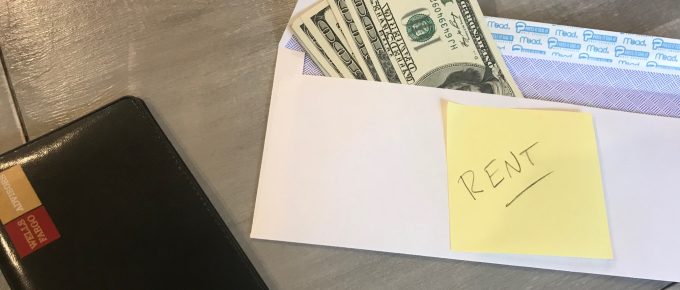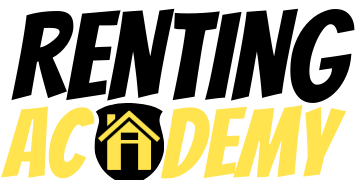
As a landlord and rental property owner you need to take advantage of every opportunity to maximize the revenue from your investment. But, is renting an apartment under the table a good idea?
While it may seem like a good way to collect cash that nobody knows about, you are better off declaring the rent for tax purposes and taking all the deductions plus depreciation that are available. You may be able to report a loss some years to offset other income. It will also help you avoid big legal issues.
There are some reasons a landlord may consider this tactic. I identify many of the pitfalls below, as well as provide a guide for those who feel they absolutely need to collect cash for rent.
Why rent an apartment under the table?
The concept of “under the table” clearly insinuates that you are trying to hide income from the government to forgo paying taxes. This is not legal and you should consult a CPA before considering this action.
But there are other reasons landlords may want to collect cash for rent that may not be so dishonest.
- Ensures rent is collected in full – A lot of renters don’t have great credit or their rental history is far from stellar. A landlord may not be sure a check will clear so wants to make certain the rent is paid by only accepting cash.
- No need to deposit – Whether you have one rental or many, the process of getting rent checks, and driving to the bank to deposit them can be daunting. Even though mobile APs make it easy to deposit a check online, many landlords are not in line with the times when it comes to technology.
- Some banks do not clear checks right away – Most landlords will rely on their rent check to pay their mortgage. Any delay in receiving rent could cause an issue with the mortgage company. Since not all banks will clear a check on the same day it is deposited, landlords may consider cash for rent as the best alternative.
- Some municipalities restrict the number of renters in a house – Some towns restrict renting to individuals from multiple families. This may help them avoid certain issues. But think about a college town where 5 students share a home. In this case, a landlord may consider a cash rent payment to avoid hassles with the town or city.
- The tenant may have a judgement and opening a checking account could cause garnishment – Either the landlord needs a renter very badly or knows the renter will be a good fit and wants to help them. In this case, a cash rent payment will help avoid raising flags for the tenant.
Disadvantages of hiding rental income
Collecting rent in cash and not reporting it to the IRS may seem like a simple way to increase your take home pay, however, there are clearly some downsides.
Lose tax write offs – A huge benefit of owning rental property is that you can write off expenses related to managing the rental. Repairs, maintenance, and office costs are just a few ways to reduce the amount of tax you owe.
Lose depreciation on taxes – Another major factor is renting property legitimately is depreciating it over a long period of time. You get to rescue your taxes by this amount every year. If you collect in cash and don’t report, you lose this amazing write off.
Rent could be late or not paid – After a few months of collecting under the table your tenant is unable to pay on time. You now have little or no recourse. It could take months to evict them if they are unable to pay.
Hard to evict (may not be a lease) – If you decide to collect rent payments without a written lease, it can be very difficult to evict your tenants when they decide to stop paying rent. You leave the decision up to a judge who will clearly see you tried to cheat the government.
Property could get damaged – The tenants seemed like good people when you rented to them, but did you do background checks? Landlords who choose to rent under the table may allow any tenants who are willing to pay. This will eventually lead to a renter who does not care about your property and trashes it.
May have to pick up rent – Collecting cash rent payments can be laborious. You may have to drive to your property to meet with the tenant. For some landlords this could be a long drive and take a lot of time. When you have multiple properties that will be tiresome. Also, tenants may start asking lots of questions you don’t want to deal with.
States may require receipt if paid in cash – Some states may require you to provide a receipt if rent is paid in cash. So much for “under the table”.
Deposit in the bank to pay mortgage expenses – If you collect cash for your rental under the table, you may still need to deposit the payment to cover your mortgage and expenses. Some banks will see this pattern and notify you that it must be declared as income.
Risk of having a lot of cash – When you get paid a large sum of money in cash each month, you have a larger risk of robbery. When money is deposited directly into a bank account, it is a lot harder to steal.
Disadvantages to tenant
There are also a few disadvantages to your tenant to pay under the table.
When you collect a security deposit, it should be credited into a separate account specifically for the tenant. If you collect rent in cash this may not be done and the tenant could lose any deposit they give in cash.
The tenant will need to go to the bank each month, withdraw a large amount of cash and transport it to the meeting place. This can be dangerous and subject to theft.
For some renters, paying rent on time each month will help establish their credit history and a background of an excellent rental history. This is not likely with an under the table policy.
Other ways to collect rent
After reviewing the pitfalls of collecting rent under the table, you may want to find an alternative way to get paid without the risk.
- When your concern is making sure the money will clear your bank, you could insist on a cashier’s check or money order. There may be a small fee for the renter to pay a money order but they get a receipt of the payment.
- A lot of landlords love MoneyGram as it is easy for the tenant and simple to deposit. It may cost the renter 2-3 dollars each month.
- Renters with a valid bank account can complete a simple ACH transfer that sends the rent directly to the landlord’s account.
- So many people already use PayPal and all it takes is an email address to make and accept payments.
How to collect rent without a check
If you know you need to collect your rent without a check, here is a simple guide you can follow to make the process easy for you and your tenant while making the IRS happy. Of course, always check with your CPA for guidance.
- Even though your tenants will not pay by check, you should still set up a separate bank account for their security deposit to keep your rental business legitimate.
- Give your renters an option to pay with a “deposit only” ATM card. Several banks offer this option and it allows you to collect rent with little hassle.
- Use MoneyGram. For a couple of bucks your renters can send you a payment that is as good as cash.
- Even if you insist on crisp US currency, always give your renters a receipt for their rent payment.
- Under no circumstances should a landlord rent without a lease. It protects both the property owner and the renter.
- Avoid the bigger hassle of an audit or appearing before a judge by declaring any income on your annual tax return. It only takes one time for you to get caught before serious penalties.
Renting under the table is not the best way to maximize revenue
While collecting some tax-free dollars may seem like a great way to make some extra revenue, managing your rental property the right way will provide bigger cash benefits over time. By learning how to use tax deductions and depreciation in your favor your income will increase without using shady practices that could get you in trouble.
